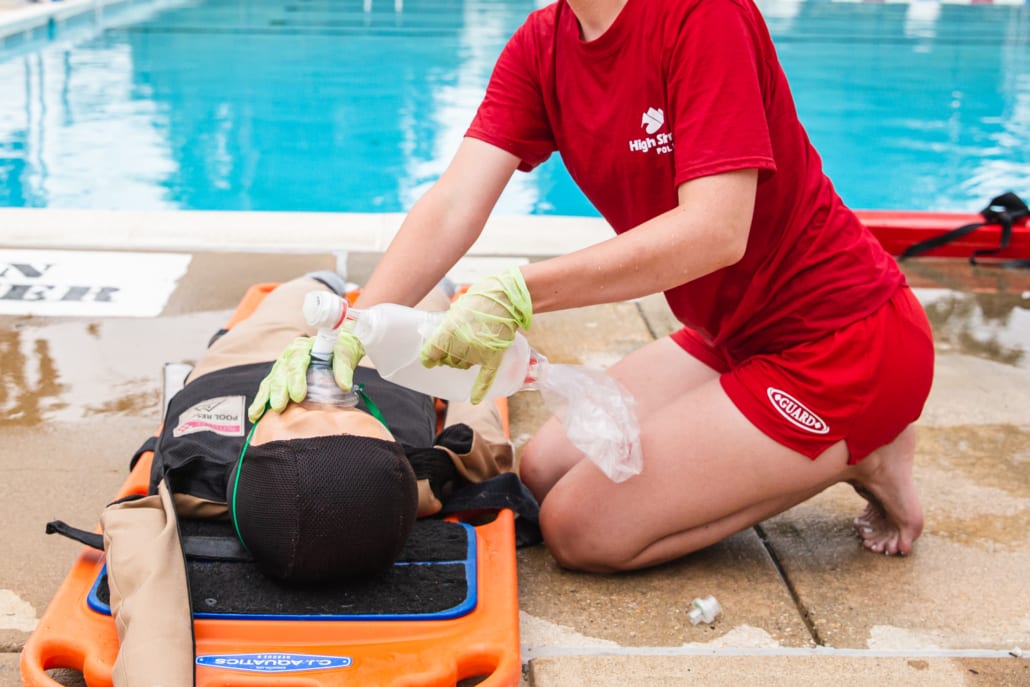Lifeguard certification courses always include first aid training in their training programs. The First Aid training will teach you how to deal with injuries and illnesses that might occur during your time at the beach. It is also designed to teach you about the different kinds of first aid equipment and methods. You will learn to be able to recognize signs of illness and injury, as well as be able to help people in need of medical care.
This training includes:
- How to respond to a person who has been injured?
- How to respond to an unconscious or unresponsive person?
- How to assist someone with breathing difficulties?
- How to help a person who has had a heart attack?
- How to handle bleeding?
- What to do for common cuts and bruises?
- What to do for sunburns, heat exhaustion, and heatstroke?
- What to do for heat cramps?
- What to do for shock?
What is First Aid training for a lifeguard?
The First Aid training will teach you how to deal with injuries and illnesses that might occur during your time at the beach. Lifeguard certification courses are designed to teach you about the different kinds of first aid equipment and methods. You will learn to be able to recognize signs of illness and injury, as well as be able to help people in need of medical care. This course includes:
- The history of first aid
- What to do if you find someone unconscious or in shock?
- What to do if you are injured or sick?
- How to treat bleeding and burns?
- What to do if you have an allergic reaction?
- What to do if someone has a seizure?
- What to do if someone has an asthma attack?
- How to treat broken bones?
- How to perform CPR?
- How to handle choking and poisoning?
- How to deal with cuts, scrapes, bruises, and other injuries?
In the lifeguarding profession, there are different types of emergencies that you have to deal with. some of them are directly related to health issues of a swimmer and others are water hazards. For example, you will see children who are struggling to breathe because they are drowning.
Different types of emergencies
There are also different types of emergencies that can occur while lifeguarding such as; drowning, heart attack, epileptic seizure, or any other type of medical emergency. In this article, we will discuss some of these different types of emergencies that can happen while lifeguarding.
Drowning
When you are lifeguarding, you are not only responsible for watching the swimmers but you have to be on guard for their safety as well. This is a very important aspect of your job as it is your duty to make sure that the swimmers are safe from any type of accident.
So, when you are in the water with them, you have to watch out for them and if you see that they are struggling to breathe, then you should alert them and get them to the side of the pool. Drowning is a very common type of emergency that you will be dealing with. It is a type of emergency that you need to be prepared for since it is very serious and can cause you to lose a lifeguard at the same time.

Drowning is a type of emergency that many lifeguards don’t like to deal with because of the fact that they are in the water all day long. If you feel that you aren’t prepared for dealing with a drowning, then you should take some lessons from a lifeguard training provider to know more about dealing with different types of emergencies.
Final thoughts
Being a lifeguard in an aquatic environment is an important as well as challenging job. People with some health issues need to have someone with First Aid training around them. Also, people who are in good physical shape can also be victims of a water emergency.
Lifeguard certification courses make the lifeguard ready to handle all kinds of aquatic emergency situations. During their lifeguard classes, they train in First Aid which gives them the ability to handle these emergencies with a professional attitude.
The American Lifeguard Association (ALA) in all of its lifeguard training programs includes a professional approach to providing first aid to the victims in aquatic conditions. If you are looking for a well-recognized and well-reputed lifeguard training provider, look no further, ALA is the place for you. For more on our lifeguard certification courses, please do not hesitate to contact us.


